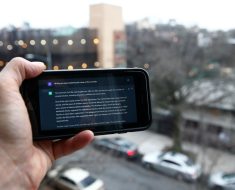-
1Center for Child Health Equity and Outcomes Research, Abigail Wexner Research Institute, Nationwide Children’s Hospital, United States -
2Department of Pediatrics, College of Medicine, The Ohio State University, United States -
3IT Research and Innovation, Abigail Wexner Research Institute, Nationwide Children’s Hospital, United States
Introduction: Pediatric sleep problems are able to be detected across racial/ethnic subpopulations in primary care settings. However, the electronic health record (EHR) data documentation that describes patients’ sleep problems may be inherently biased due to both historical biases and informed presence. This study assessed racial/ethnic differences in natural language processing (NLP) training data (e.g., pediatric sleep related keywords in primary care clinical notes) prior to model training.We used a pre-defined keyword features set containing 178 Peds B-SATED keywords. We then queried all of the clinical notes from patients seen in pediatric primary care between the ages of 5 and 18 from January 2018 to December 2021. A least absolute shrinkage and selection operator (LASSO) regression model was used to investigate whether there were racial/ethnic differences in documentation of Peds B-SATED keywords. Then, mixed effects logistic regression was used to determine whether the odds for the presence of global Peds B-SATED dimensions also differed across racial/ethnic subpopulations.Results: Using both LASSO and multilevel modeling approaches, the current study found that there were racial/ethnic differences in providers’ documentation of Peds B-SATED keywords and global dimensions. In addition, the most frequently documented Peds B-SATED keyword rankings qualitatively differed across racial/ethnic subpopulations.This work revealed providers’ differential patterns of documenting Peds B-SATED keywords and global dimensions that may account for the under-detection of pediatric sleep problems among racial/ethnic subpopulations. In research, these findings have important implications for the equitable clinical documentation of sleep problems in pediatric primary care settings and extends prior retrospective work in pediatric sleep specialty settings.
Keywords:
Sleep, Equity, Public Health, Primary Care, Informatics, machine learning, population health
Received: 01 Aug 2023;
Accepted: 26 Jan 2024.
Copyright: © 2024 Davenport, Sirrianni and Chisolm. This is an open-access article distributed under the terms of the Creative Commons Attribution License (CC BY). The use, distribution or reproduction in other forums is permitted, provided the original author(s) or licensor are credited and that the original publication in this journal is cited, in accordance with accepted academic practice. No use, distribution or reproduction is permitted which does not comply with these terms.
* Correspondence:
Dr. Mattina A. Davenport, Abigail Wexner Research Institute, Nationwide Children’s Hospital, Center for Child Health Equity and Outcomes Research, Columbus, 43215, Georgia, United States



![[2402.13446] Large Language Models for Data Annotation: A Survey [2402.13446] Large Language Models for Data Annotation: A Survey](https://aigumbo.com/wp-content/uploads/2023/12/arxiv-logo-fb-235x190.png)

